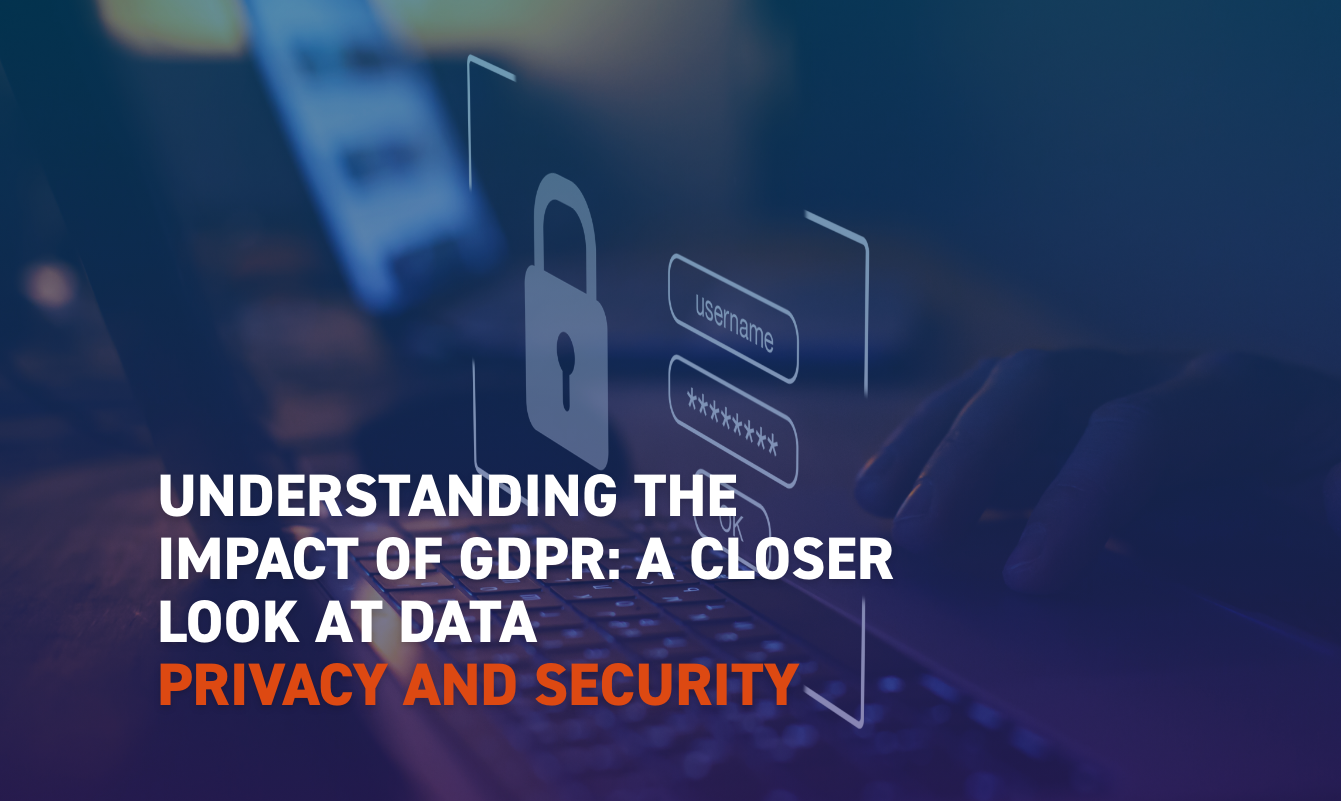In today’s digital world, the General Data Protection Regulation (GDPR) has become an essential compliance requirement for software products. The GDPR is a set of rules that require businesses to protect personal data and ensure its secure storage and use.
Understanding the implications of GDPR and taking appropriate measures to comply with it is essential. This blog post will discuss the importance of GDPR compliance for software products.
What is GDPR?
The General Data Protection Regulation (GDPR) is a regulation in EU law on data protection and privacy for all individuals within European Union (EU) and the European Economic Area (EEA). It replaces the 1995 EU Data Protection Directive.
The GDPR sets out the rules for the collection, storage and use of personal data and gives individuals more control over their personal information. It applies to all companies operating in the EU, outside the EU that offers goods and services to individuals in the European Union.
The GDPR is the toughest privacy and security law in the world. Though it was drafted and passed by the European Union (EU), it imposes obligations onto organizations anywhere, so long as they target or collect data related to people in the EU. The GDPR will levy harsh fines against those violating privacy and security standards, with penalties reaching tens of millions of euros.
Why was GDPR introduced?
The General Data Protection Regulation (GDPR) was introduced by the European Union (EU) to address the growing concerns about the protection of personal data in the digital age. With the rise of the internet and new technologies, the amount of personal data collected and stored by the organizations has increased dramatically. At the same time, instances of data breaches and cyber-attacks have become more common, putting individuals’ personal information at risk.
The GDPR was created to address these concerns and to give individuals more control over their personal data. It aims to protect personal data from being collected or processed without an individual’s consent and to ensure that organizations handle personal data responsibly and securely.
The GDPR sets out strict rules for the collection, storage, and use of personal data and establishes a comprehensive framework for data protection and privacy. The regulation applies to all organizations operating in the EU and to companies outside of the EU that offer goods and services to individuals in the EU.
Key Requirements of GDPR include:
- Consent: Businesses must obtain explicit consent from individuals to collect, use, and store their personal data. (Chapter 2 Art. 6) (Recital 40)
- Right to Access: Individuals have the right to access their personal data and information about how it is being processed. (Chapter 3 Art. 15) (Recital 63)
- Right to be forgotten: Individuals have the right to have their personal data erased or forgotten under certain circumstances. (Chapter 3 Art.17) (Recital 66)
- Data Breach Notification: Businesses must notify individuals and authorities of any data breaches that may affect their personal data. (Chapter 4, Art.33) (Recital 86)
- Privacy by Design: Businesses must implement appropriate technical and organizational measures to ensure the protection of personal data. (Chapter 4 , Art. 25 (Recital 78)
The significance of these requirements is that they provide individuals with greater control over their personal data and privacy. The GDPR helps ensure that businesses are transparent about how they collect and use personal data, and take appropriate steps to protect it. The regulation also helps to reduce the risk of data breaches and other privacy violations, which can have significant financial and reputational consequences for businesses.
The consequences of Non-Compliance:
The consequences of non-compliance with the GDPR (General Data Protection Regulation) can be severe and includes:
- Fines: Businesses that are found to be in breach of the GDPR can be fined up to €20 million or 4% of their global annual turnover, whichever is higher. The amount of the fine will be dependent on the severity of the breach.
- Legal Action: Individuals may take legal action against businesses that are found to be in breach of the GDPR. This can result in additional financial costs and the reputation of business, particularly if it is found to have mishandled personal data or failed to take appropriate measures to protect it.
- Loss of Business: Non-Compliance with the GDPR can result in the loss of business, as customers may choose to take their business elsewhere if they do not trust a company to protect their personal data.
- Increased Scrutiny: Non-Compliance with the GDPR can result in increased regulatory scrutiny and oversight, which can be time-consuming and costly for businesses.
In summary, the consequences of non-compliance with the GDPR are significant and can have long-lasting effects on a business’s financial and reputational standing.
Steps to Compliance:
To be GDPR compliant, the following steps are to be followed:
- Conduct a Data Audit: Identification of Personal data that the business collects, processes and stores. This includes both electronic and physical data.
- Update Privacy Policies: Ensure that the business privacy policy is up to date and clear, concise and easily understandable by the individuals.
- Obtain Consent: Ensure that the individuals provide explicit consent to collect, use and store their personal data. This consent should be freely given, specific, informed and unambiguous.
- Implementation of Data Protection Measures: Implement appropriate technical and organizational measures to protect personal data, such as encryption, access controls and regular data backups.
- Provide training: Training shall be provided to all the employees to ensure that they understand the GDPR and their role in compliance.
- Establish Data Breach procedure: Determine procedures to detect, report and investigate data breaches. This includes notifying individuals and authorities in the event of a breach.
- Appoint a Data Protection Officer: Appoint a Data Protection Officer (DPO) who is responsible for ensuring GDPR compliance.
- Conduct Regular Audits and Reviews: Regular audits and reviews shall be conducted on the business’s data protection processes and procedures to ensure they remain up-to-date and effective.
In summary, to be GDPR compliant, businesses must take proactive approach to data protection and privacy. This includes identifying what personal data is collected and implementing appropriate technical and organizational measures to protect it, as well as ensuring that individuals provide explicit consent for the collection and use of their personal data.
Conclusion:
In conclusion, the GDPR (General Data Protection Regulation) is an essential regulation that sets out to protect the privacy and personal data of individuals within the European Union. By implementing the GDPR, businesses can ensure that they are transparent about how they collect and use personal data, that they take appropriate measures to protect it, and that individuals have greater control over their personal data.
Compliance with the GDPR is not optional- it is a legal requirement for all the businesses that process the personal data of EU citizens. Failure to comply can result in significant financial and reputational consequences, including fines, legal action, and loss of business. However, compliance with the GDPR is not just about avoiding penalties. It is also about building trust with customers, demonstrating a commitment to data protection and privacy and ensuring that personal data is handled ethically and responsibly.
In today’s digital age, data protection and privacy are more critical than ever before. The GDPR provides a framework for businesses to protect personal data and respect the privacy of individuals and it is up to all of us to ensure that we comply with its requirements. By taking a proactive approach to GDPR compliance, businesses can protect their customer’s personal data build trust, and contribute to a more ethical and responsible digital environment.



